On Wednesday, October 22, members of the Digital Problem-Solving Initiative (DPSI) community gathered to hear from members of the seven DPSI teams. DPSI teams feature a diverse group of learners (students, faculty, fellows, and staff) working on projects addressing problems and opportunities across the university. DPSI participants have had the novel opportunity to enhance and cultivate competency in various digital literacies as teams engage with research, design, and policy relating to the digital world.
Each team had 3 minutes to present its progress and 9 minutes of feedback from the DPSI community audience.
AccessEd: Accessibility in Online Education
Mentors: Chris Bavitz and Kira Hessekiel (Berkman Center for Internet and Society, Cyberlaw Clinic)

AccessEd has been considering ways to make online education more accessible to people with disabilities. They have been meeting with individuals and offices across Harvard (HarvardX, Accessible Education Office) to figure out how to incentivize professors developing Massive Open Online Courses (MOOCs) to consider and apply accessibility practices upfront. The group is still grappling with the question of whether or not a Harvard centric or broad focus on MOOCs would be the best area for their efforts.
Big Data
Mentor: Jim Waldo (Chief Technical Officer, Harvard University )
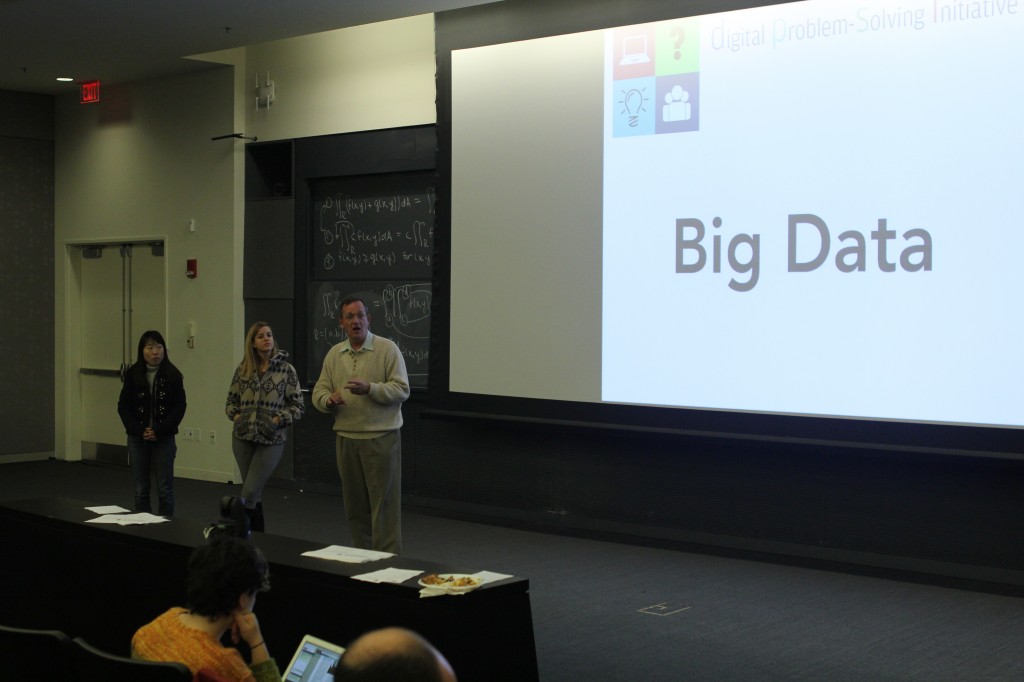
Big Data has developed a year-long timeline with the goal of figuring out ways to prevent the de-identification of data from compromising the data set integrity. The team has gained help from Professor Joseph Blitzstein of the Statistics Department to delve into why de-identifying data may alter results. They would ultimately like to figure out how to preserve privacy while maintaining the validity of data interpretation.
eyeData: Data Visualization and Exploratory Tools Applied to Real-World Research Data
Mentor: Mercé Crosas and Vito D’Orazio (Institute for Quantitative Social Science)
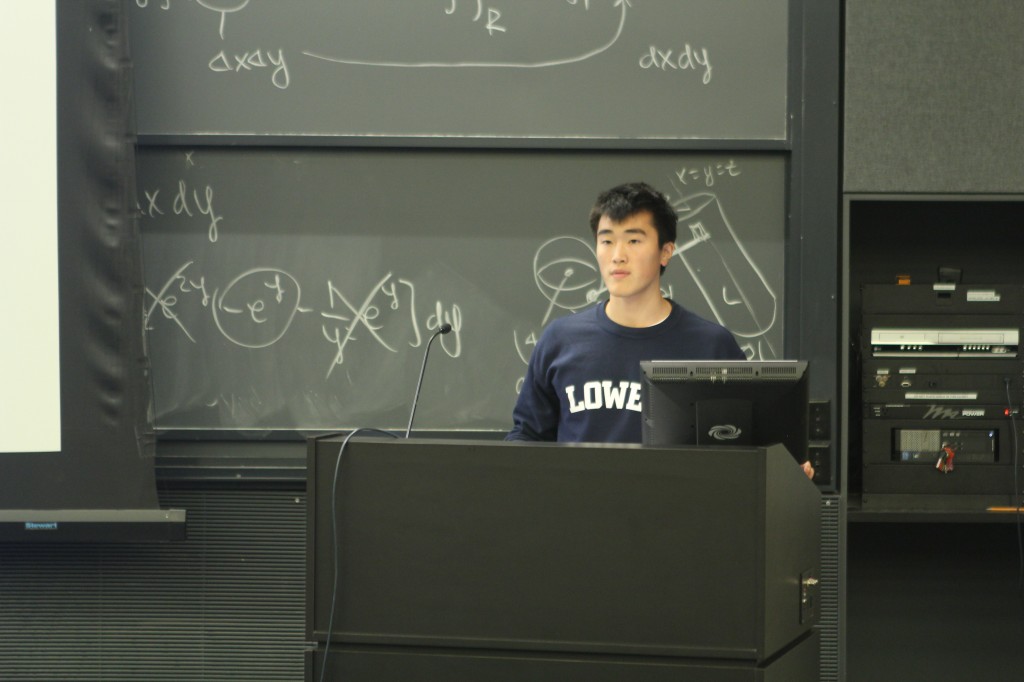
eyeData’s team includes several coders who have been able to create visualizations of IQSS-Dataverse data. They’ve started developing a website using Django and Jenkins, incorporating visualizations made using d3 of data processed using Panda. The team sought insight from social scientists and engineers in the audience regarding how to best build a website that would feature the types of visualizations social scientists would use.
Farmer’s Market: Building A Self-Sustaining Harvard Farmer’s Market
Mentor: Margiana Peterson-Rockney (Food Literacy Project)
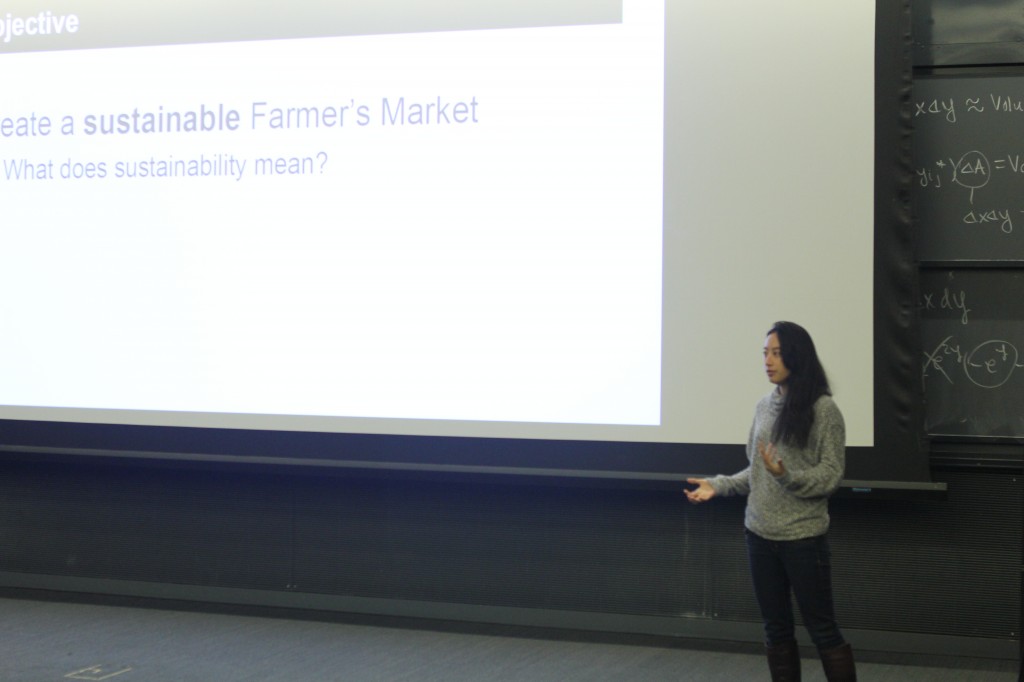
A representative from the Farmer’s Market group discussed challenges her group has been facing. The definition of sustainability varied according to different team members: some thought it meant financial sustainability while others thought it meant sustainability of the local food ecosystem. This, along with technical challenges, has been one of the hurdles the group has been trying to tackle in the past few weeks. The group opened up to feedback from the audience regarding their definitions of sustainability.
Safe Campus: Dealing With Sexual Assault on Campus
Mentors: Diane Rosenfeld and Anisha Gopi (Harvard Law School)
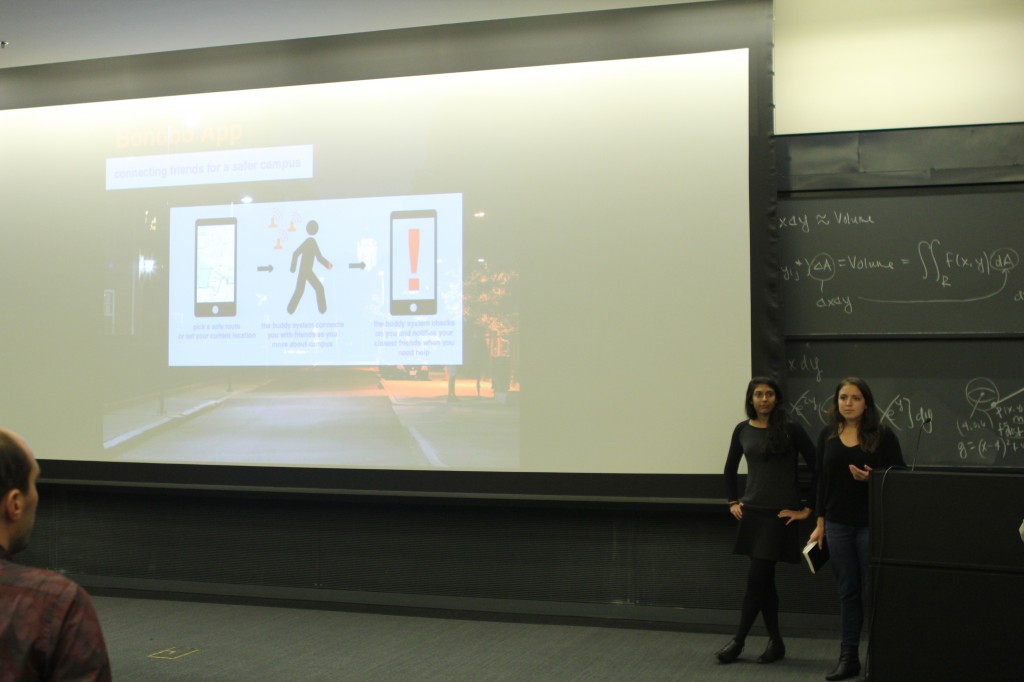
Members of the Sexual Assault team talked about their ideas for an app called Bonobo. The app, modeled off of Bonobo behavior, involves an emergency network of contacts that would enable individuals to broadcast messages to their contacts in a time of vulnerability. The group will be meeting with various groups across Harvard’s campus already tackling the issue of sexual assault to see the type of technology that would best support their goals.
#DocShop: Interactive Documentary Workshop
Mentors: Matthew Battles, Cris Magliozi, and Jessica Yurkofsky (metaLAB)
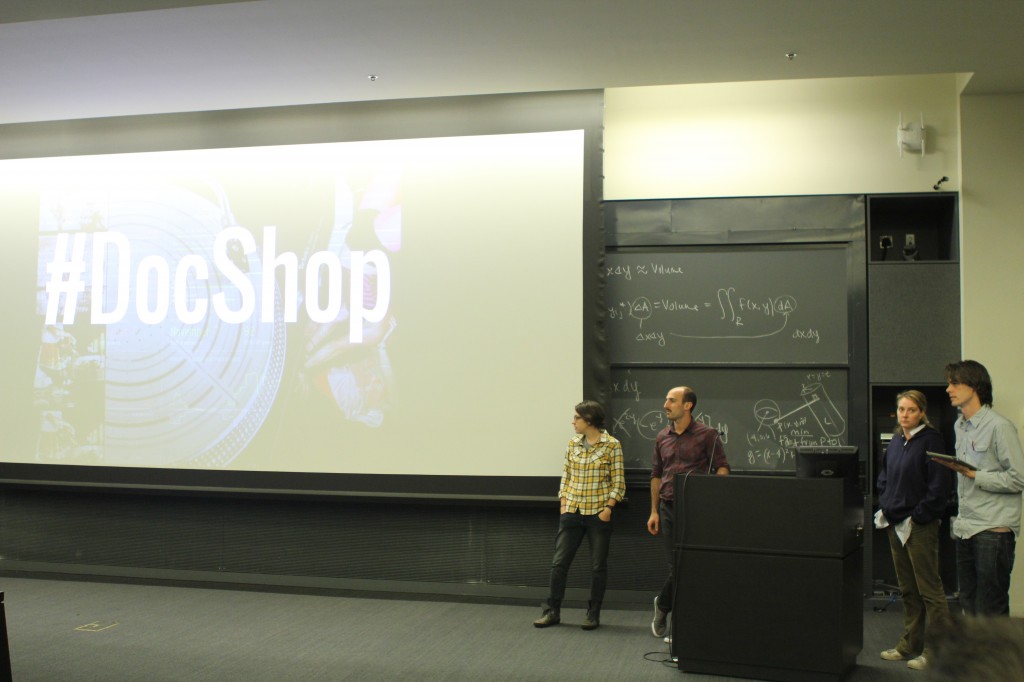
#DocShop team members talked about their year-long trajectory for uncovering a definition for interactive documentary film making and figuring out how to shift from audiences and spectators to actors. They are also combatting issues like authorship in interactive documentary. The group’s goal involves actually creating an interactive documentary experience, to better define this new form of storytelling.
OA2014: Open Access
Mentors: Peter Suber and Colin Lukens (Office of Scholarly Communication)

OA2014 has been working to figure out what the best nudge would be to get faculty to deposit their published materials. With several academics in the audience, feedback considered what method would be best to get professors within Harvard to hand over published work. The Berkman Center’s new open access policy could set a precedent for OA2014 to work off of, sending a message to the entire Harvard community.
Keep up to date with DPSI team progress on the blog, and be sure to look out for an invitation to the team Final Presentations!
Check out slides from each group’s presentation here: Mid-Review Slide Deck
